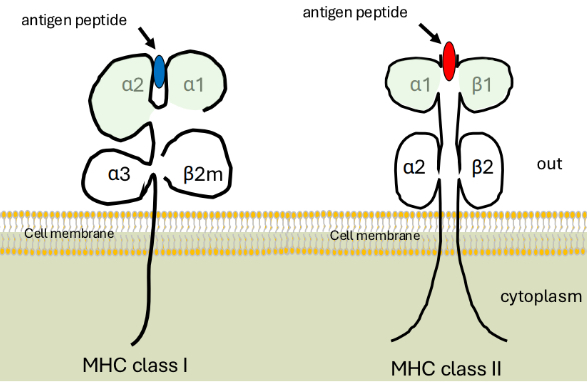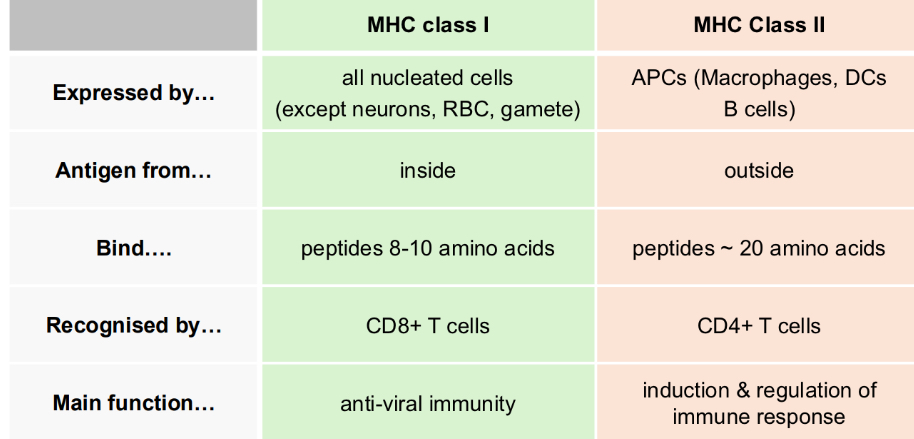Antigens and Antigen processing
1/12
There's no tags or description
Looks like no tags are added yet.
Name | Mastery | Learn | Test | Matching | Spaced |
|---|
No study sessions yet.
13 Terms
What are antigen presenting cells?
Cells that capture antigens, process them into small peptides, display them at their surface through MHC II molecules to activate antigen-specific T cells
Initiate adaptive immune response
What are antigens?
Molecules or pieces of molecules that bind to antibodies (secreted BCR), MHC molecules or TCRs
Subcategories:
• Immunogen: substances capable of stimulating an immune response
• Haptens: substances that will not by themselves produce an immune response but can do so when complexed with a larger molecules, such as a host protein
How are adaptive immune responses stimulated?
Adaptive immune response molecules must be complex, organic, degradable, large AND recognisably foreign.
Most antigens are proteins, they are degraded in order to be able to present them on MHC molecules to T cells. T cells cannot recognise whole proteins but they do recognise peptides that are presented to them on MHC.
What is antigenic epitope?
Parts of of a antigen that are good at stimulating an immune response.
What are the types of epitope?
Epitopes are either continuous or discontinuous
i.e. They consist of adjacent amino acids (recognised by T cells/MHC) or non-adjacent amino acids that only come together when the protein is folded (recognised by BCR)
What do MHC molecules do?
.MHC class I and class II present peptide fragments of protein antigens to T cells.
• Presentation is critical: if a pathogen escapes MHC presentation, the host is more susceptible to infection.
• Each MHC molecule can bind a variety of antigens, increasing coverage.
• No single MHC molecule can bind all possible antigens, highlighting the importance of multiple MHC molecules and genetic diversity.
What mechanisms contribute to the diversity of MHC molecules?
Each MHC has evolved to be able to present a large number of antigenic epitopes; alongside this there are multiple loci (gene spots) and a very high degree of polymorphism in the genes (many possible forms/alleles of the gene)
What is MHC polymorphism good?
In terms of infectious diseases where there is diversity there will always be animals that survive and become immune (inbred populations are at high risk of being wiped out by new pathogens)
Why is MHC polymorphism bad?
For transplantation the huge diversity makes matching difficult.
How is MHC structured?
MHC class I and MHC class II
Both are two-chain molecules
Both are transmembrane glycoproteins
Each MHC molecule will bind multiple antigenic peptides.

What are the differences between MHC class I and MHC class II?

What do MHC class I molecules present?
Intracellular antigens
What do MHC class II molecules present?
Exogenous agents